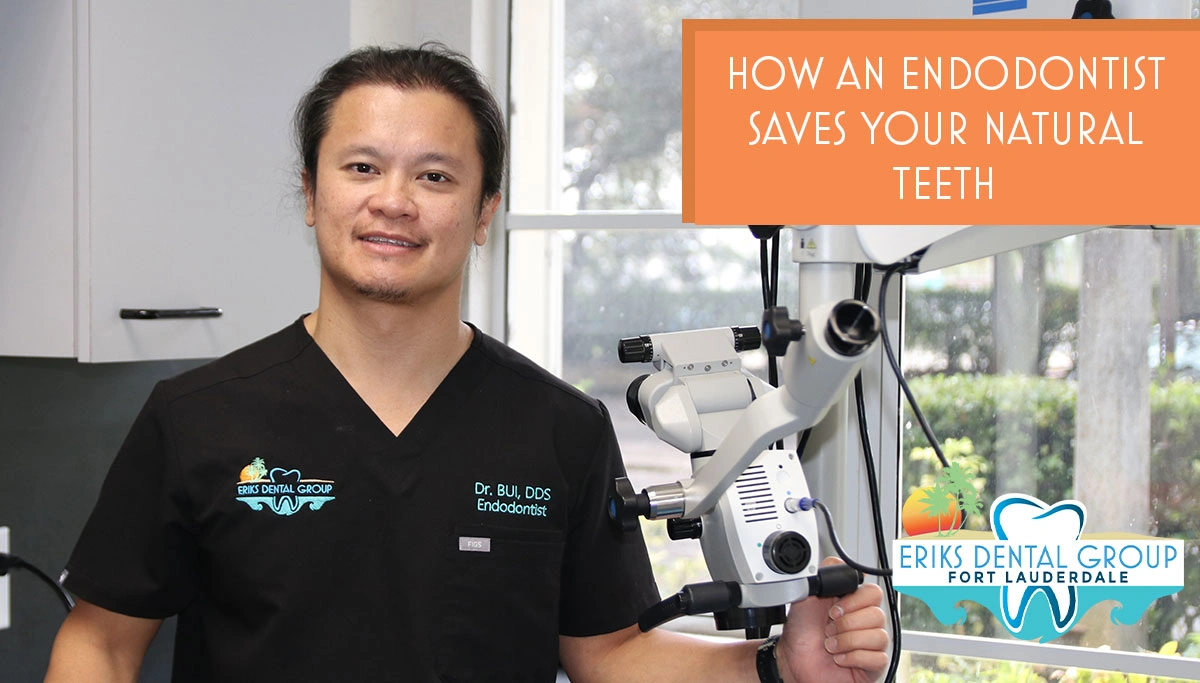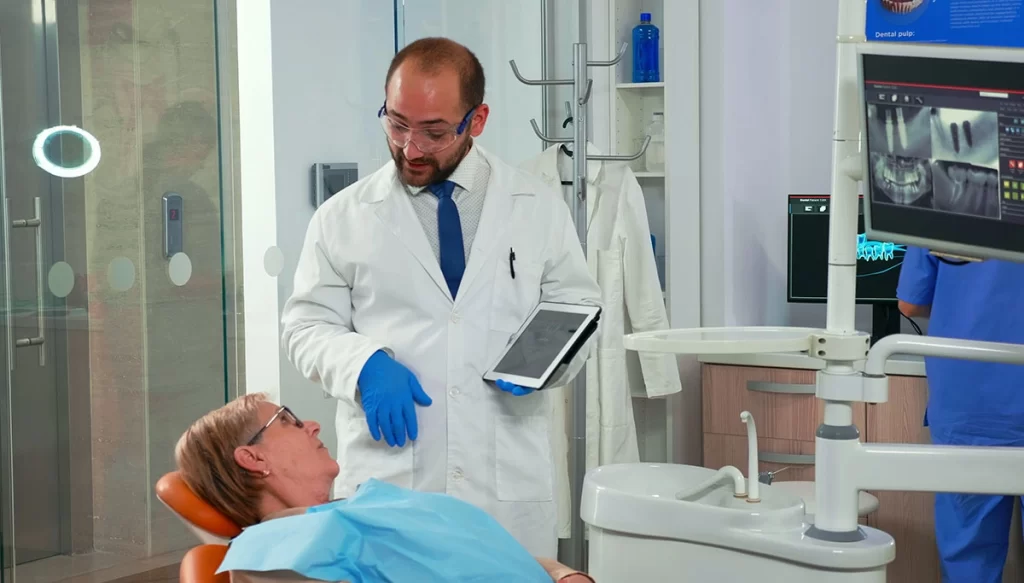
Endodontics is a dental specialty that works with the structures inside your teeth, whether the pulp, tissues, or nerves. An endodontist has additional dental training to perform specialized dental procedures like a root canal. During a root canal, a dying or diseased nerve is removed, and the gap is sealed inside the tooth with a crown to restore oral health and tooth functionality.
Endodontists are dental specialists who are responsible for repairing tissues inside a tooth. They can diagnose and treat different causes of tooth pain, whether from infection, tooth decay, or an injury. Their overall goal is to save your natural tooth along with helping relieve tooth or mouth pain and maintain the integrity of your smile.

Some signs or symptoms that could mean you need to visit a local endodontist:
A tooth infection can cause pain or aches and a visible pimple usually shows signs of an abscess. With your oral health, it’s important not to delay treatment as it may lead to the need for a more advanced dental procedure.

Usually, root canal therapy is used to save the natural tooth and is caused by inner tooth damage. Some common causes of this damage include:
Understanding tooth anatomy can help you understand the dental procedure better. Underneath the enamel, the hard outer layer of your tooth is a softer tissue known as the pulp. This pulp runs from the crown to the root; beneath this are nerves that lie at the root of the tooth. Sometimes these can become inflamed and infected. During a root canal, an endodontist removes this infected pulp and nerves and fills the empty canal with a fill.

Usually, a root canal will take two dental visits to complete. First, x-rays are taken before any dental treatment begins. This imaging helps us to examine your teeth to identify which tooth requires treatment. These high-quality images allow our dental team to determine how far the cavity has extended.
Next, an opening is made into the tooth’s surface. The pulp is completely removed and the open space is shaped and cleaned. A cement called gutta-percha is applied on top of the tooth to fill and seal the space, which is important as it ensures that the root canals are completely sealed, which prevents future infection.
Extra images are then taken to ensure the proper shape and length are used before placing the temporary filling. This filling helps restore functionality instantly while the permanent restoration is being made. It’s recommended that a crown is used after a root canal, as without one, there’s a high risk of the tooth breaking or cracking.
Once the customized crown is ready, you will return for a fitting appointment. This waiting period is also beneficial as it allows the swelling from the root canal treatment to subside before your permanent crown is fitted. We will remove your temporary and place your crown. Next, we will check your bite to ensure the proper fit.
After your dental treatment, we provide detailed aftercare instructions. You should expect the area to remain numb for several hours. It’s important not to eat anything until numbness subsides.
Depending on the severity of your infection, you may be prescribed antibiotics. Follow the instructions on taking your antibiotics at the proper times. Also, always complete the entire antibiotic prescription even if you’re feeling better.
Warm salt water rinses are helpful with pain or discomfort. Mix one teaspoon of salt with 8 ounces of warm water. Swish for about a minute or two and then spit out.
1. What are some benefits of having a root canal?
Root canals help eliminate infection, which when left untreated, could cause serious problems like jawbone damage.
2. How long does it take to recover from a root canal?
It takes less than a week to fully recover. If your tooth still hurts after a week, call your dental office.
3. What are some tips for taking care of myself post-root canal?
Eat soft foods for the first few days after. Avoid chewing on the treated tooth. Brush your teeth after every meal and floss daily.
4. How can I avoid another root canal?
Practicing good oral hygiene and scheduling regular dental exams are the best ways. Also, brushing and flossing regularly helps remove dental plaque, which causes cavities.
5. Do root canals hurt?
While it is uncomfortable, most of the discomfort is when the anesthesia is injected into your gums. Most people say they have less pain after treatment as it eliminates the infection that made the tooth hurt initially. However, your tooth will remain sensitive for the first few days after.

If you’re experiencing tooth pain or discomfort, schedule an appointment at Eriks Dental Group for a comprehensive dental exam. During this visit, our dental team will evaluate your oral health. We believe that prevention is the best approach to dentistry and encourage our patients not to delay dental treatment.
To schedule an appointment, call our Fort Lauderdale dental office at 954-463-5051, or book an appointment online.
© 2026 Eriks Dental Group - Fort Lauderdale - All Rights Reserved. Dental Website Design by Connectica